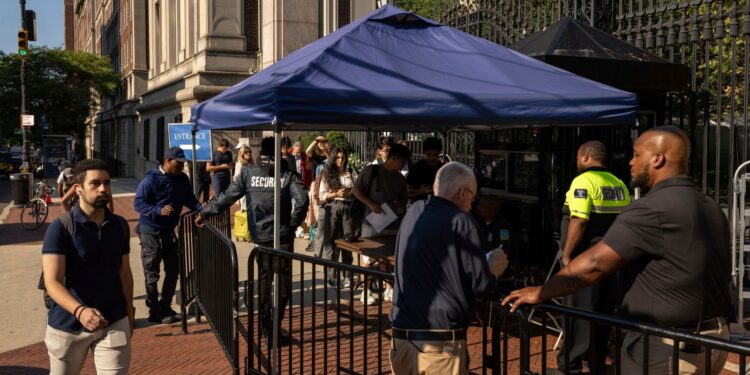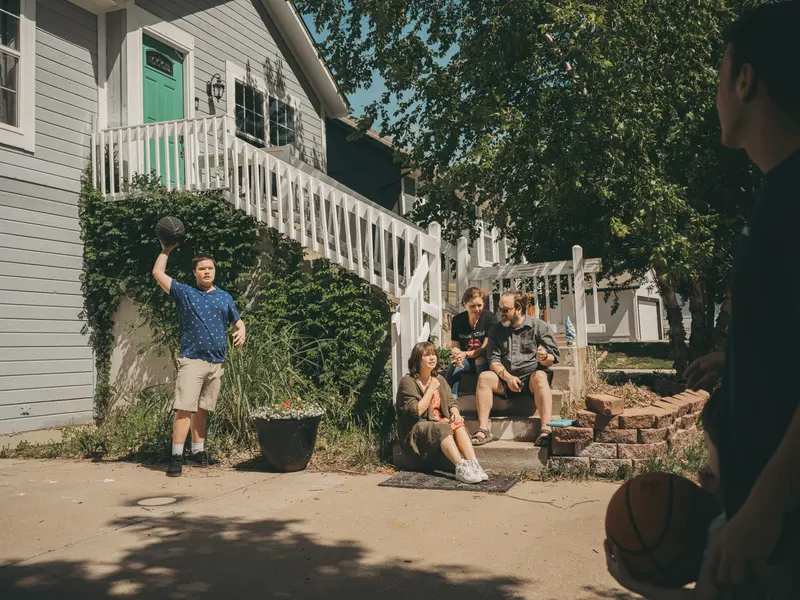
As college campuses across New York City brace for pro-Palestinian protests on the anniversary of the Israel-Hamas war, Columbia University Monday boosted its security measures over what officials say is “concern about the potential for violence.”
Columbia interim president Katrina Armstrong, in a message to students and faculty, said there’s been “rapidly increasing evidence” their main campus in Morningside Heights is a “major focus for protest and other activity.” In response, the university suddenly blocked guests from accessing campus — breaking with a QR-code system that had been in place for approved visitors — and increased public safety personnel, she announced.
“We have several student groups planning for special events and non-violent protests and are working diligently to support those plans,” Armstrong wrote in a statement released just after midnight. “At the same time, we have also learned and had evidence of plans of groups not affiliated with Columbia choosing to come to our Morningside campus for activities that raise concern about the potential for violence.”
Students from more than a dozen local college campuses are planning to walk out of class and head to Washington Square Park, before joining a larger citywide protest organized by the pro-Palestinian group Within Our Lifetime. The organization was originally formed by local students at the City University of New York.
Columbia University students, flyers show, are planning to leave class a few hours before the main protest for the steps of Low Library. The campus remains closed to the public and accessible only to student and faculty. Preauthorized guests at the eleventh hour were booted from campus access.
In a series of social media posts, protesters said they picketed the Brooklyn residence of NYPD Deputy Commissioner of Counterterrorism Rebecca Weiner. One of the protesters wearing a Columbia sweatshirt held a sign, saying: “Revenge for Hind’s Hall,” the name protesters gave to Columbia’s occupied Hamilton Hall.
The demonstration, the posts said, was scheduled for “the anniversary of the glorious Al-Aqsa Flood,” which killed more than 1,200 people, mostly civilians, and took 251 more hostage, according to Israeli official figures. Israel, in turn, launched an invasion that has since resulted in the deaths of more than 40,000 Palestinians in Gaza, more than half of whom were women and children, according to the Gaza Health Ministry.
For days, student-protesters at Columbia have been reading the names of Palestinians killed during Israel’s war in Gaza in the center of campus. Meanwhile, Jewish students are also hosting events and demonstrations, including a screening of a documentary on the events of Oct. 7, an art installation, and a vigil where students will say Hebrew prayers for loss.
Armstrong replaced former university President Minouche Shafik, who resigned after coming under fire for her handling of several weeks of tense pro-Palestinian protests in the spring.
Originally Published:







